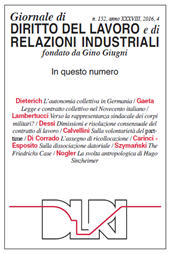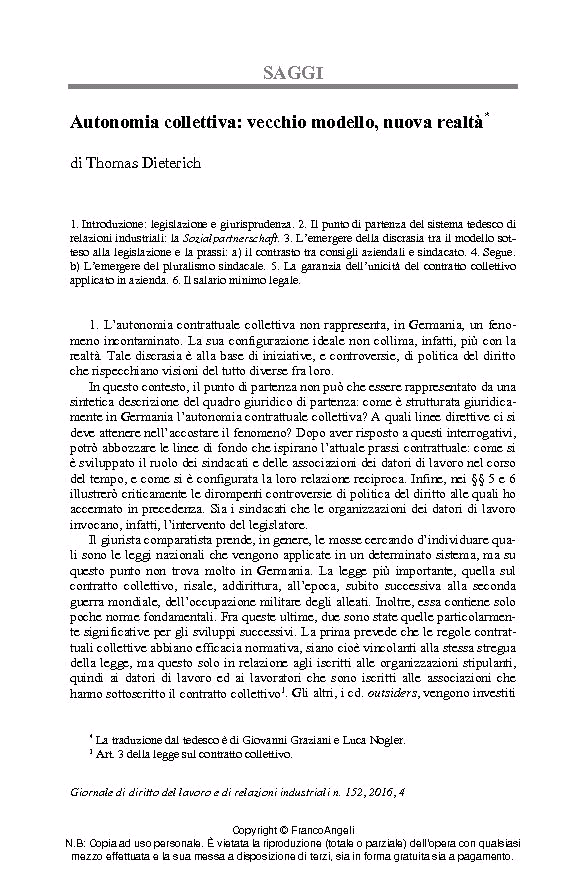Autonomia collettiva : vecchio modello, nuova realtà
557-571 p.
L'autore pone in luce la discrasia che contraddistingue il sistema tedesco di relazioni industriali, così come è concretamente evoluto nell'ultimo decennio, e il diritto vivente tedesco in tema di diritto sindacale. Egli giunge alla conclusione che tale situazione giustifica l'introduzione del salario minimo orario di natura legale mentre considera incostituzionale la previsione del principio di specialità in tema di concorrenza tra contratti collettivo tutti in astratto applicabili alla medesima unità contrattuale. [Testo dell'editore].
The author highlights the discrepancies between the German system of industrial relations, as it has evolved in practice in the last decade, and the applicable norms of collective labour law. He concludes that a situation as such justifies the introduction of a legal hourly minimum wage, while he considers unconstitutional the option to declare applicable, in case of conflict between two company level collective agreements potentially applicable to the same company, the collective agreement which provides for more specific rules. [Publisher's Text].
-
Articoli dello stesso fascicolo (disponibili singolarmente)
-
Informazioni
Codice DOI: 10.3280/GDL2016-152002
ISSN: 1972-5507
PAROLE CHIAVE
- Diritto sindacale tedesco, Contrattazione collettiva, Autonoma sindacale, Salario minimo
- German collective labour law, Collective bargaining, Autonomy of workers' organizations, Minimum wage



